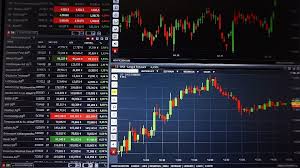
Understanding Forex Trading Regulations: A Comprehensive Guide
Forex trading can be a rewarding endeavor, but it comes with its own set of challenges and complexities, especially when it comes to regulations. Understanding forex trading regulations Forex Trading Apps and their corresponding regulations is crucial for any trader looking to navigate this global market successfully. In this article, we will break down the key aspects of forex trading regulations, their importance, and how they vary across different jurisdictions. This comprehensive overview aims to equip traders with the necessary knowledge to comply with legal requirements and make informed trading decisions.
The Importance of Forex Trading Regulations
Forex trading regulations are designed to protect traders and ensure a fair and transparent trading environment. They help to prevent fraud, promote fair practices, and establish a level playing field for all participants in the forex market. Regulatory bodies provide oversight, ensuring that brokers adhere to high standards of conduct, thus enhancing the integrity of the entire financial system.
Key Regulatory Bodies
Each country has its own regulatory body overseeing forex trading. Some of the most influential regulations come from the following organizations:
- The Commodity Futures Trading Commission (CFTC) – USA: The CFTC is the primary regulator for forex trading in the United States, safeguarding the markets from fraud and abusive practices.
- The National Futures Association (NFA) – USA: Working alongside the CFTC, the NFA self-regulates the forex industry, promoting ethical conduct among its members.
- The Financial Conduct Authority (FCA) – UK: The FCA oversees forex brokers in the United Kingdom, ensuring they adhere to strict guidelines to protect consumers.
- The European Securities and Markets Authority (ESMA) – EU: ESMA implements standardized regulations across the European Union, providing consistent rules for forex trading.
- The Australian Securities and Investments Commission (ASIC) – Australia: ASIC is responsible for regulating forex brokers in Australia, ensuring market integrity and consumer protection.
Types of Regulations
Forex regulations can be classified into several categories, including but not limited to:
- Licensing and Registration: Brokers must be licensed by the appropriate regulatory authority, demonstrating their financial stability and compliance with legal standards.
- Capital Requirements: Many jurisdictions mandate brokers maintain a minimum amount of capital as a buffer against potential losses, ensuring that they can sustain trading operations.
- Client Fund Protection: Regulations often require brokers to keep client funds in segregated accounts, protecting them in case of broker insolvency.
- Leverage Limits: To mitigate risk, some regulators impose limits on the leverage brokers can offer to retail clients, thus preventing excessive speculation.
- Disclosure Obligations: Brokers must disclose their fees, trading conditions, and risks involved in trading to clients, promoting transparency.

Impact of Regulations on Traders
Traders need to be aware of the regulatory landscape as it directly affects their trading experience. Compliance with regulations ensures that traders:
- Engage with trustworthy and reputable brokers.
- Have recourse in case of disputes or issues with broker practices.
- Receive proper education about trading risks and practices.
Challenges of Forex Regulations
While regulations aim to create a safer trading environment, they can also pose challenges for both traders and brokers. Some common challenges include:
- Complexity: Navigating various regulations in different jurisdictions can be complicated, especially for traders operating in multiple countries.
- Cost of Compliance: Brokers may pass on the costs of compliance to traders through higher fees or less favorable trading conditions.
- Limited Trading Choices: Regulators may limit the types of products and services brokers can offer, potentially restricting traders’ options.
The Future of Forex Trading Regulations
As the forex market evolves, so do the regulations governing it. Technological advancements such as the rise of blockchain, algorithmic trading, and the introduction of cryptocurrencies are prompting regulatory bodies to adapt. The future may see:
- More stringent regulations to combat market manipulation and fraudulent activities.
- Greater international cooperation among regulatory bodies to ensure consistency across borders.
- Increased focus on protecting retail traders amid growing participation.
Conclusion
In conclusion, understanding forex trading regulations is essential for anyone looking to participate in the forex market. These regulations play a crucial role in protecting traders and ensuring market integrity, despite the challenges they may present. Traders are encouraged to educate themselves about the regulatory landscape in their respective countries, choose regulated brokers, and stay informed about changes in regulations. In doing so, they can navigate the forex market more effectively and minimize the risks associated with trading.


